Search Results
All about Analyze This: An article type from Science News Explores
Use this lesson plan to learn about an article type called Analyze This that is published by Science News Explores in print and online. You can also access a lesson plan template that can be used with any Analyze This article. Each Analyze This article includes a graph or data visualization that is paired with questions for students to answer and a short story that provides context.
Literacy Practice: KWL Strategy
Use this lesson plan and the provided template to have your students practice the KWL strategy. This note-taking strategy helps students organize their thoughts and reflect on their knowledge around a particular reading.
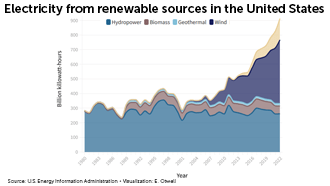
Renewable power is a bright idea
Over the past two decades, electricity from renewable sources, such as wind and solar, has been on the rise. Devices known as grid-forming inverters will likely play a major role in getting renewable energy safely into the power grid.
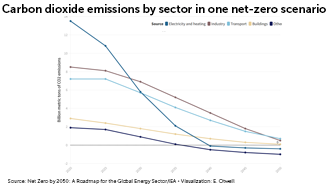
The race to net zero
Drastic cuts to greenhouse emissions are needed to prevent even more catastrophic consequences than the rising sea levels, extreme weather and other impacts our warming world has already faced. Scientists have mapped out potential paths to net-zero, when greenhouse gases emitted are balanced by those removed. This includes decreases in emissions from transportation, industry and other sectors.
All about STEM Comics, called Wild Things: An article type from Science News Explores
How can comic strips help teach experimental design of research studies? Use this lesson plan to learn about an article type called Wild Things that is published by Science News Explores in print and online. Wild Things use comic strips that tell the stories of research studies on animals’ biology and behavior. You can also access a lesson plan template that can be used with any Wild Things article.
Literacy Practice: 3-2-1 Strategy
Use this lesson plan and the provided template to have your students practice the 3-2-1 strategy. This literacy strategy is a quick way to check students’ understanding of a concept, reading or lesson. It helps them summarize and organize their thoughts by listing three responses to one prompt, two responses to another prompt and one response to a final prompt.
All about Technically Fiction: An article type from Science News Explores
Use this lesson plan to learn about an article type called Technically Fiction that is published by Science News Explores in print and online. Technically Fiction articles focus on a fictional phenomenon and explain whether it could be possible and the science it would take to make it a reality. You can also access a lesson plan template that can be used with any Technically Fiction article.
Literacy Practice: Concept Map
Use this lesson plan and the provided template to have your students practice creating concept maps for any article. This literacy strategy boosts critical thinking and reading retention by having students organize information and connect important ideas, concepts and terms.
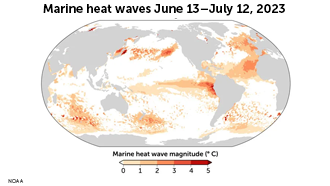
Analysis of marine heat waves
Global temperatures are at an all-time high due to the compounded effects of climate change and El Nino. Oceans around the world are warming at an alarming rate. In summer 2023, some 40 percent of the world’s oceans were affected by heat waves.
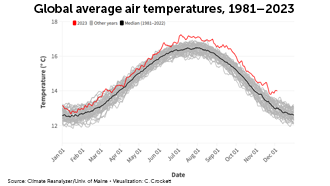
Hottest year on record
Since temperature record-keeping began 150 years ago, the 12-month period from November 2022 through October 2023 was the hottest on record until temperatures in 2024 exceeded those in 2023. The heat raised sea surface temperatures, melted sea ice and endangered human health.
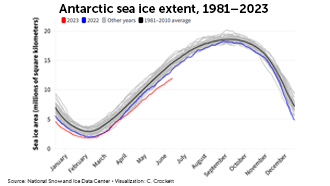
Antarctic sea ice
In 2023, the expanse of floating ice encircling Antarctica hit record lows throughout the year. Scientists expect dramatic declines in sea ice at Earth’s other pole but hadn’t observed major changes in the Antarctic until the last few years.
All about Explainers: An article type from Science News Explores
Use this lesson plan to learn about an article type called Explainers that is published by Science News Explores in print and online. You can also access a lesson plan template that can be used with any Explainer article. Explainer articles take a deep dive into a key scientific concept or process.